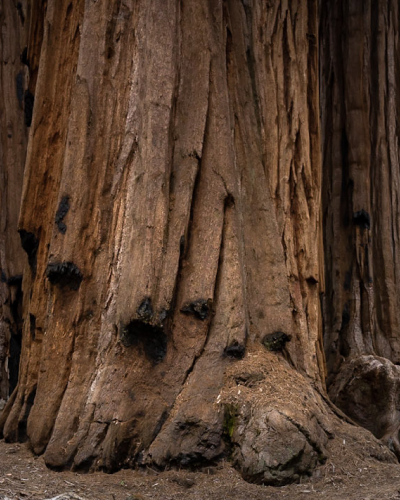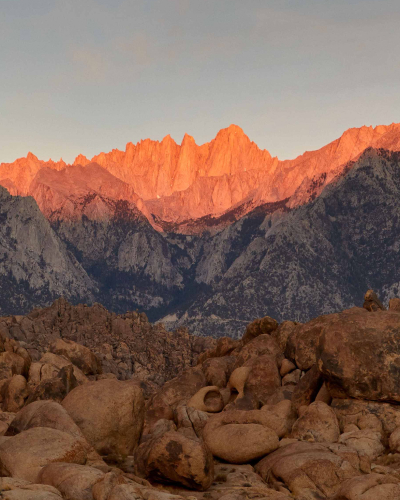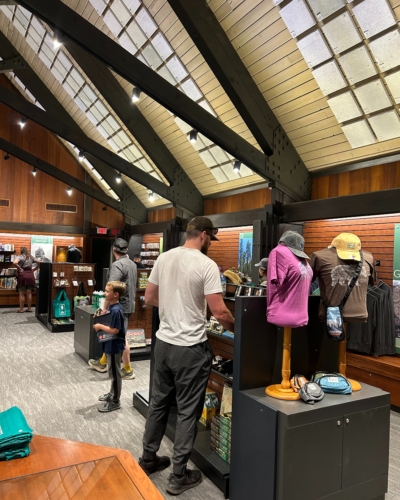Dark Sky Festival
2025 Dark Sky Festival Schedule
Sequoia and Kings Canyon National ParksCan’t make it to the Dark Sky Festival? No worries! You can still be a star by donating!
Your support helps keep our skies dark and our public education programs free for all to enjoy.
Thursday, September 11, 2025
Visalia, CAKick off the 12th Annual Dark Sky Festival with an unforgettable evening at the historic Visalia Fox Theater. Experience Cosmic Dawn: The Story of the James Webb Space Telescope, a powerful documentary that explores humanity’s most advanced eye into the universe.
The evening begins with a special pre-show performance by Zachary Foll on the Mighty Wurlitzer Organ from 5:00–5:45 PM (a community favorite).
At 6:00 PM, the documentary comes to life on the big screen, followed by a live Q&A with members of the James Webb Telescope team, our keynote guests for this year’s Dark Sky Festival.
This event is a rare opportunity to connect with science, exploration, and discovery in an inspiring setting.
- Date: Thursday, September 11, 2025
- Location: Visalia Fox Theater
- Doors Open: 5:00 PM
- Pre-show: 5:00–5:45 PM
- Film at 6:00 PM
THIS IS A FREE EVENT TO THE PUBLIC – Hosted by Sequoia Parks Conservancy, this special screening sets the stage for a weekend of stargazing, science, and celebration during the Dark Sky Festival in Sequoia and Kings Canyon National Parks.
Friday, September 12, 2025
Sequoia National ParkThe Wings That Hold the Night Sky Together
NPS Ranger
11:00 AM – 11:20 AM
Giant Forest Museum
This program helps visitors discover the important role bats play in the nighttime ecosystem of Sequoia and Kings Canyon National Parks. Learn how bats hunt, what they eat, and the challenges they face, like white-nose syndrome. Visitors will also leave with simple actions they can take to help protect bats in their own communities
Sequoias in the Stars
NPS Ranger
2:00 PM – 2:20 PM
Giant Forest Museum
How did navigating the wilderness happen then versus now? Listen to the stars and you’ll see where the forest meets the sky.
Touch Table
NPS Ranger
3:00 PM – 4:00 PM
Lodgepole Plaza
Explore the life of our moon, how it affects our lives and how our planet affects it.
When Darkness Falls
NPS Ranger
7:30 PM – 8:30 PM
Lodgepole Amphitheater
Join this program for a deep dive into what night means to us, how darkness is a disappearing resource, and how you can protect the natural nightscape of the parks and beyond.
The Wonders of Dark Skies – Astrophotography, Astronomy, Light Pollution and Prevention
Jeremy Evans
8:00 PM – 10:00 PM
Beetle Rock Education Center
This program covers light pollution and prevention, followed by a night sky tour. Showcasing images and videos from Sequoia, Kings Canyon, and other national parks. Learn about the Milky Way, lunar rainbows, meteor showers, distant galaxies, comets, nebulas, and eclipses. This is an indoor presentation, followed by an outdoor tour of the night sky at Beetle Rock.
Why Stargazing Matters – Naked Eye Astronomy Program
Alex Kiner, Sequoia Parks Conservancy
8:30 PM – 9:30 PM
Wuksachi Lodge – Meet in Lobby
The night sky in Sequoia and Kings Canyon National Parks is one of the darkest in the State of California. Explore the wonders of the night sky on this naked-eye astronomy program, where we will take you on a visual tour through the stars and constellations!
Kings Canyon National Park
Sun Zone!
12:00 PM – 4:00 PM
Grant Grove Village
Discover the festival’s daytime hub of activity at the Sun Zone! Here you’ll find hands-on programs, solar telescope viewing, family-friendly activities, and opportunities to connect with community partners. This year, the Webb Space Telescope Team will also join us, sharing their knowledge and insights.
Meet ALAN (Artificial Light at Night)
NPS Ranger
6:00 PM – 6:30 PM
Bradley Meadow – Across from Kings Canyon Visitor Center
What is light pollution, also known as ALAN (Artificial Light at Night)? Learn how it affects people and animals, why dark skies are such an important resource, and the role national parks play in protecting the night sky.
Night Hike and Naked Eye Astronomy Program
Sequoia Parks Conservancy
8:00 PM – 9:30 PM
Panoramic Point
Meet at Panoramic Point trailhead for an evening hike to Panoramic Point, where sweeping views of Kings Canyon set the stage for stargazing. At the overlook, enjoy a naked-eye astronomy program. For this half-mile hike consider bringing a headlamp and a light jacket.
Saturday, September 13, 2025
Sequoia National ParkSequoias in the Stars
NPS Ranger
11:00 AM – 11:20 AM
Giant Forest Museum
How did navigating the wilderness happen then versus now? Listen to the stars and you’ll see where the forest meets the sky.
Cosmic Fireworks: How Astronomers Explore the Changing Sky
Sam Rose – Caltech
1:00 PM – 2:00 PM
Wuksachi Lodge – Alta Room
The Universe evolves over the course of billions of years—a timescale almost incomprehensible to humans. But there are some things in the night sky that change much faster. Spectacular explosions of massive stars dying, pulsing stars, and comets and asteroids drifting through our Solar System are all examples of changes in the sky that happen over the course of weeks, months, or years. These events, which cause new sources of light to appear and disappear in the sky, are called “astronomical transients.” In this talk, we will explore the history of astronomical transients, including observations of an exploding star by Chinese astronomers in 1054 CE, the search for comets over the centuries, and the first large-scale surveys of the sky using the Mt. Wilson and Palomar observatories. We will also cover next-generation efforts to detect these events using Caltech’s very own Zwicky Transient Facility (ZTF) and the brand-new Vera Rubin Observatory, which will reveal millions of new asteroids and supernovae across the sky in the coming years.
Birds and the Night Sky
John Rowden
1:00 PM – 2:00 PM
Beetle Rock Education Center
Billions of birds migrate between different places during the year, an incredible feat that inspires awe and is the subject of active research. Many birds migrate at night and dark skies are critical to their success. This talk will explore how and why birds migrate at night and how we can help them complete their journeys.
Sun Zone!
12:00 PM – 4:00 PM
Lodgepole Plaza
Discover the festival’s daytime hub of activity at the Sun Zone! Here you’ll find hands-on programs, solar telescope viewing, family-friendly activities, and opportunities to connect with community partners. This year, the Webb Space Telescope Team will also join us, sharing their knowledge and insights. Whether you’re exploring science, engaging with local organizations, or simply enjoying the fun, the Sun Zone offers something for everyone.
Our Fascination with the Night Sky
NPS Ranger
2:00 PM – 2:20 PM
Giant Forest Museum
For thousands of years, the night sky has captured humanity’s imagination. Join this program to explore how stars connect us through stories, science, and wonder.
Unveiling the Secrets of Our Universe Through Its First Light
Harshda Saxena – Caltech
2:00 PM – 3:00 PM
Wuksachi Lodge – Alta Room
Our universe began in the most massive explosion ever, the Big Bang. Three hundred thousand years after this explosion, light was able to escape the hot soup of matter and formed the first snapshot of our universe. Thirteen point eight billion years later, humans on a tiny rock called Earth can use modern telescopes to study the amount and distribution of matter and energy in the universe, massive clusters of galaxies, the state of the universe in its first few seconds, and everything in between, simply by studying this first light.
The Darkest Night: A Story About What Thrives When There’s No Light
Amy Oliver
2:00 PM – 3:00 PM
Beetle Rock Education Center
Just as light sparks life, so too does darkness. From plants building up their food stores to bees taking a much-needed snooze, to astronomers peering out into the vastness of the Universe, darkness is bustling with life and secrets. Come on a beautiful journey with dark sky advocate Amy C. Oliver, FRAS, through “The Darkest Night” to see what’s going on in the darkness while you’re safely tucked away in dreamland.
Touch Table
NPS Ranger
3:00 PM – 4:00 PM
Lodgepole Plaza
Explore Sequoia’s natural balance through animals active during dawn and dusk hours.
The Making of a Star and Her Entourage
Facundo Perez Paolino – Caltech
3:00 PM – 4:00 PM
Wuksachi Lodge – Alta Room
From swirling clouds of gas and dust, stars are born in spectacular fashion. In this talk, we will journey through the life of a newborn star, from its turbulent beginnings to the formation of the planets, asteroids, and comets that make up its entourage. Along the way, we’ll explore how astronomers use telescopes to uncover the hidden processes shaping these young worlds, and what they can teach us about the history of our own Sun and Solar System.
From Galileo to Smart Telescopes
Dennis “Astronomy Guy” Martin
3:00 PM – 4:00 PM
Beetle Rock Education Center
The program covers a brief history of the optical telescope and astrophotography, how to get started in astronomy with little or no cost, and an introduction to the features, capabilities, and operation of Smart Telescopes, concluding with a summary and additional resources.
Ask an Astrophysicist – Panel
Caltech
6:00 PM – 7:00 PM
Lodgepole Amphitheater
A panel of astrophysicists from Caltech will field questions from the audience on all astronomy, physics, and space science topics. Join us and bring your burning questions about stars, galaxies, life in the universe, black holes, science fiction, and more. The panel will do its best to address every question.
Breaking Cosmic Frontiers with the Webb Telescope
Dr. Macarena Garcia Marin
7:30 PM – 8:30 PM
Lodgepole Amphitheater
Webb is the largest, most sophisticated telescope ever built; its successful launch in 2021 marked the beginning of a new era of infrared astronomy. In this presentation, we will explore Webb’s engineering marvels and discover how its golden eye has changed our view of the universe, challenged some preconceptions, and opened new avenues of scientific exploration. From the very first galaxies to our own solar system’s backyard, Webb has not only delivered on its promise of revolutionizing astronomy but also given us new mysteries to solve. Let us examine them together.
STAR PARTY!
9:00 PM – 11:00 PM
Wuksachi Lodge – Back Parking Lot
Join us for the festival’s most anticipated event! Powerful telescopes will be set up at the Wuksachi Lodge back parking lot, giving you a chance to gaze at breathtaking astronomical objects. Expert astronomers will guide you to distant galaxies, star clusters, and other deep-sky wonders, answering your questions as the universe comes alive before your eyes.
Park at the Lodgepole Campground parking area and ride the park shuttle to Wuksachi Lodge. Shuttles will operate from 8:30 PM – 11:00 PM.
Hosted by the Kern Astronomical Society
Kings Canyon National Park
Night Photography and Light Pollution
Jeremy Evans
2:00 PM – 3:00 PM
Kings Canyon Visitor Center – Discovery Room
This program covers light pollution and its prevention, showcasing images and videos from Sequoia, Kings Canyon, and other national parks. Participants will learn about the Milky Way, lunar rainbows, meteor showers, distant galaxies, comets, nebulae, and eclipses.
Night Sky Discovery
NPS Ranger
3:00 PM – 3:30 PM
Kings Canyon Visitor Center – Discovery Room
Get introduced to the wonders of the night sky and join a ranger for activities related to the moon and stars! Suitable for families and children.
STAR PARTY!
8:00 PM – 11:00 PM
Big Stump Picnic Area
Parking Can Be Limited
Experience the magic of the night sky in Kings Canyon! The Central Valley Astronomers will host an evening in the Big Stump Picnic Area, where telescopes will open a window to galaxies, star clusters, and other deep-sky marvels. Knowledgeable astronomers will be there to share their expertise, answer questions, and help you discover the universe in a whole new way.
Hosted by the Central Valley Astronomers
Sunday, September 14, 2025
Sequoia National ParkConstellation Yoga: From the Stars to the Mat
Amy Oliver
9:00 AM – 10:00 AM
Beetle Rock Education Center
Flow through the myth of Perseus as told by the constellations, bringing the ancient story to life on your yoga mat. This yoga sequence is suitable for most yoga practitioners, but departs from the traditional by combining Greek mythology and its influence on the 88 western constellations with aligned asanas from multiple paths of yoga. Guests can expect a mild Yin Yoga experience, holding some positions longer to flow safely through Perseus’ story. Bring a yoga mat, sleeping pad, or towel to use.
The Wings That Hold the Night Sky Together
NPS Ranger
2:00 PM – 2:20 PM
Giant Forest Museum
This program helps visitors discover the important role bats play in the nighttime ecosystem of Sequoia and Kings Canyon National Parks. Learn how bats hunt, what they eat, and the challenges they face, like white-nose syndrome. Visitors will also leave with simple actions they can take to help protect bats in their own communities.
Touch Table
NPS Ranger
3:00 PM – 4:00 PM
Lodgepole Plaza
Explore Sequoia’s natural balance through animals active during dawn and dusk hours.
The Flip of a Coin
NPS Ranger
7:30 PM – 8:30 PM
Lodgepole Amphitheater
This world sees two very drastically different sides every day: night and day. How does the wildlife fare with that change? What happens in between?
How the James Webb Telescope Navigates Space and Time
Kelly Lepo
7:30 PM – 8:30 PM
Wuksachi Lodge – Alta Room
In this presentation, Dr. Lepo will explain how Webb uses stars to find its direction in space, and how scientists are using Webb data to navigate through space and time. We will take a deep dive into some of Webb’s latest discoveries, including what we are learning about the early universe, how stars form and die, what planets around other stars are like, and explore our dynamic Solar System.
Why Stargazing Matters – Naked Eye Astronomy Program
Alex Kiner, Sequoia Parks Conservancy
8:30 PM – 9:30 PM
Wuksachi Lodge – Meet in Lobby
The night sky in Sequoia and Kings Canyon National Parks is one of the darkest in the State of California. Explore the wonders of the night sky on this naked-eye astronomy program, where we will take you on a visual tour through the stars and constellations!
Kings Canyon National Park
Sun Zone!
12:00 PM – 4:00 PM
Grant Grove Village
Night Sky Discovery
NPS Ranger
3:00 PM – 3:30 PM
Kings Canyon Visitor Center – Discovery Room
Get introduced to the wonders of the night sky and join a ranger for activities related to the moon and stars! Suitable for families and children.
Meet ALAN (Artificial Light at Night)
NPS Ranger
6:00 PM – 6:30 PM
Bradley Meadow – Across from Kings Canyon Visitor Center
What is light pollution, also known as ALAN (Artificial Light at Night)? Learn how it affects people and animals, why dark skies are such an important resource, and the role national parks play in protecting the night sky.
Night Hike and Naked Eye Astronomy Program
Sequoia Parks Conservancy
8:00 PM – 9:30 PM
Panoramic Point
Meet at Panoramic Point trailhead for an evening hike to Panoramic Point, where sweeping views of Kings Canyon set the stage for stargazing. At the overlook, enjoy a naked-eye astronomy program. For this half-mile hike consider bringing a headlamp and a light jacket.
Get Updates on the Festival
Stay updated on the latest news about the Dark Sky Festival! Fill out the form below to be the first to receive new updates.
The James Webb Space Telescope Team
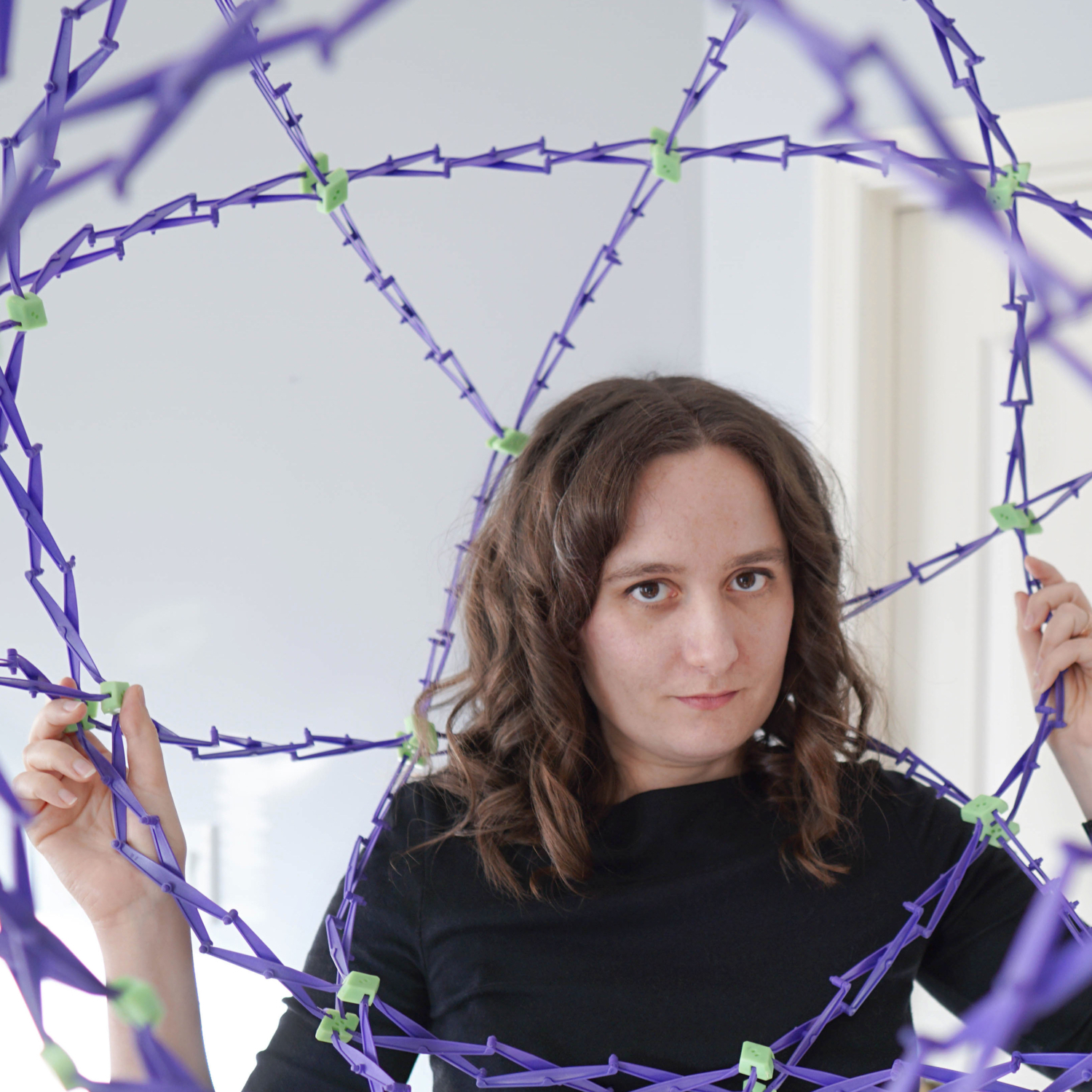
Dr. Kelly Lepo
Dr. Kelly Lepo is an Education and Outreach Scientist at the Space Telescope Science Institute, where she supports outreach efforts for the James Webb Space Telescope. She received a PhD in Astronomy and Astrophysics from the University of Toronto. During her time in Canada, she made numerous local and national media appearances to discuss astronomical events from meteor showers to the “Super Blue Blood Moon”. She previously served as the Coordinator of the McGill Space Institute, taught physics at Gonzaga University, and helped build the Large Hadron Collider at CERN.
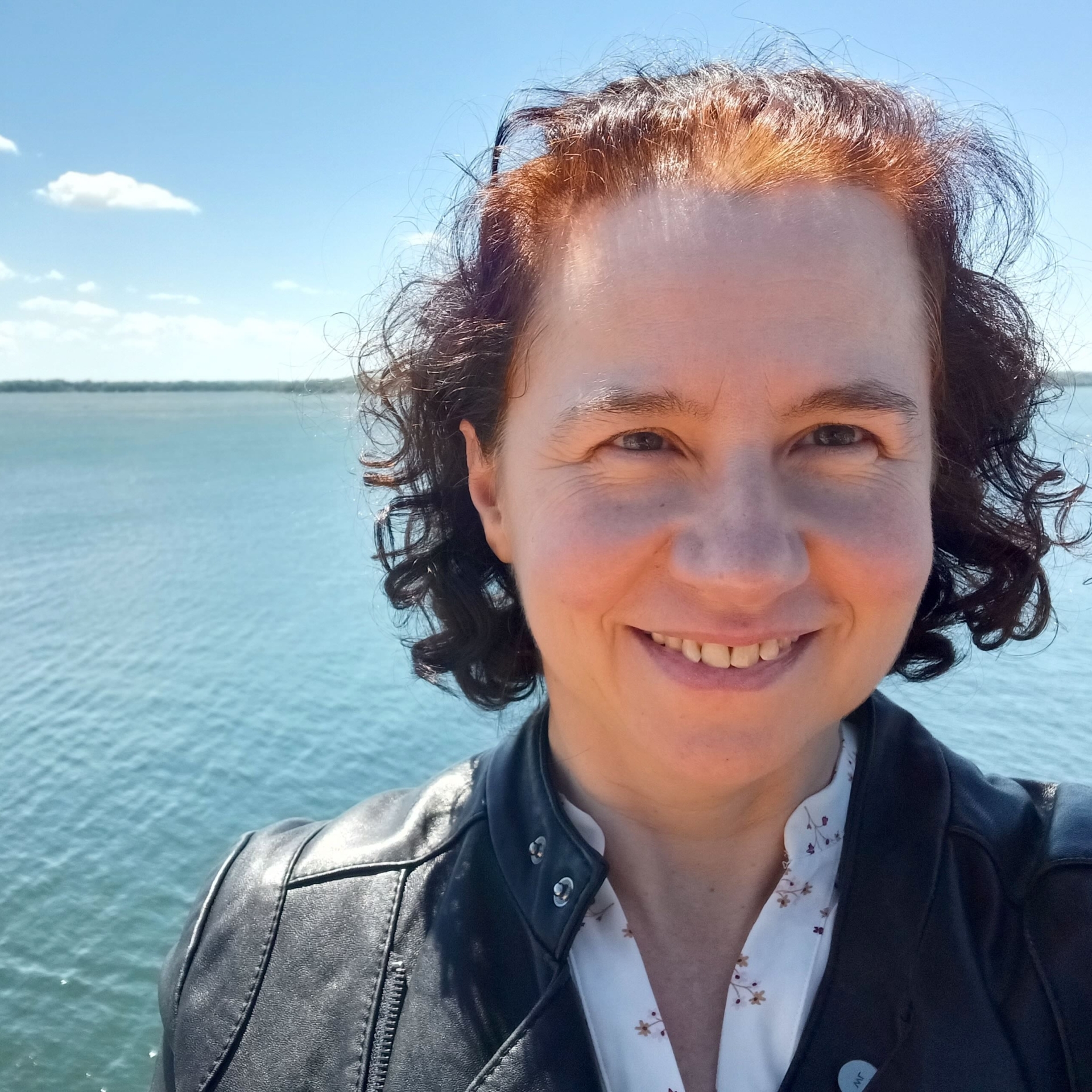
Dr. Macarena Garcia Marin
Dr. Macarena Garcia Marin is the Webb Project Scientist at the Space Telescope Science Institute, and an Operations Scientist for the European Space Agency. She is from the Canary Islands, Spain, where beautiful dark skies and the presence of an astronomical observatory inspired her to become an astronomer. She pursued her undergraduate studies in the Canary Islands, and earned her PhD in Madrid, Spain. She then moved to Cologne, Germany, with a post-doctoral position to conduct extragalactic studies, and joined the JWST MIRI Instrument Team, in charge of integrating, testing, and calibrating the instrument. In 2015 she joined the European Space Agency and moved to Baltimore to work on Webb, where she led the MIRI team through the launch and commissioning periods. She is an expert in mid-infrared imaging and spectroscopy and is part of international collaborations that use space and ground-based observatories to understand the origin and evolutions of our galaxies, from the dawn of the Universe to our own galactic center.
Caltech Astro
Sam Rose
CalTech PhD student
Harshda Saxena
CalTech PhD student
Facundo Perez Paolino
CalTech PhD student
Contributing Experts
Amy Oliver
Center for Astrophysics, Harvard & Smithsonian
Amy Oliver
Amy C. Oliver, FRAS is a light pollution scientist and informal science educator at the Smithsonian Astrophysical Observatory's Whipple Observatory, and a SkyNights presenter for the Mt. Lemmon SkyCenter.
John Rowden
John Rowden joined the board of the Sequoia Parks Conservancy in 2024. He earned his PhD in Zoology from Duke University and has worked over his career at the Wildlife Conservation Society, Auckland (New Zealand) Zoo and the National Audubon Society.
Jeremy Evans
Jeremy Evans is a professional photographer, filmmaker, amateur astronomer and delegate for Dark Sky International. He lives full time in the Eastern Sierra with endless photographic and dark sky opportunities.
Dennis Martin
My career spanned more than 40 years as a radio broadcast engineer, which allowed me to hone my skills with many different types of technology. I am a Platinum Patron Member of the Riverside Astronomical Society and a member of two professional societies.



